Castor Oil For Face: 5 Essential Benefits & DIY Recipes
Commonly known as a hair care remedy, this oil can also be effective for skin care.
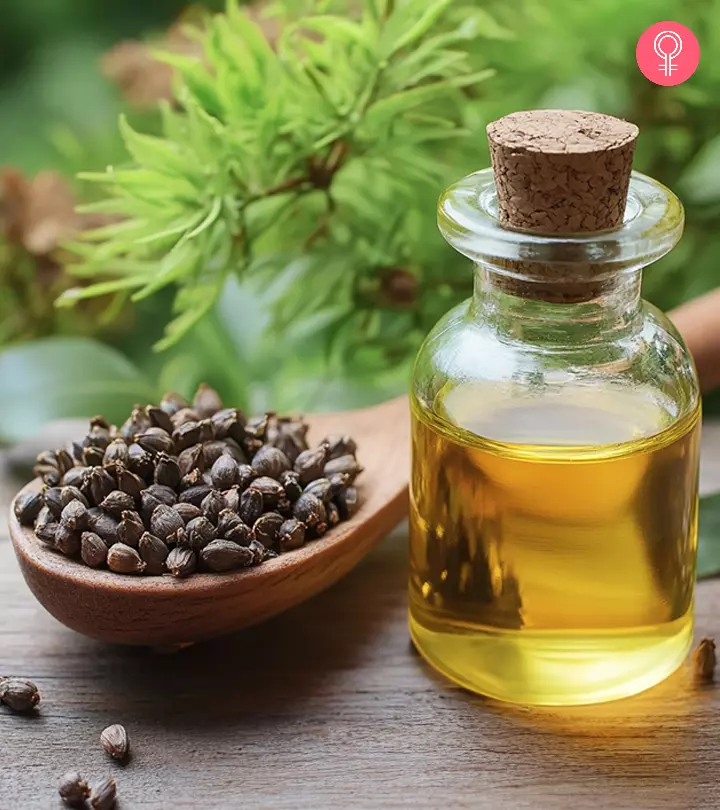
Image: Midjourney/ StyleCraze Design Team
You might have used castor oil for scalp massages. You might have also used it as a laxative. But have you ever used castor oil for your face and skin? Castor oil is extensively used in commercial skin care products. While research is extremely limited regarding castor oil’s topical benefits, anecdotal evidence shows that it might contribute to your skin health. This article digs deeper into the skin care benefits of castor oil and how you can use it for maintaining skin health. Keep reading.
In This Article
What Is Castor Oil?
Castor oil is a type of vegetable oil extracted from the seeds of the Ricinus communis plant. The seeds are also called castor beans and contain high levels of ricin, a type of toxic enzyme. However, ricin is removed from the oil when it is processed. Processed castor oil is safe for use. This oil has been used for ages in traditional therapies. Ancient Egyptians used castor oil to prevent eye irritation (1). Whether used topically or ingested in small amounts, castor oil benefits many parts of the body, But, it is also essential to be aware of its potential side effects when used improperly.
 Trivia
TriviaThere are several benefits of the topical application of castor oil. Let’s take a look.
Key Takeaways
- Anecdotal evidence suggests that castor oil may help keep the skin moisturized.
- Castor oil face mask helps tone the skin and exfoliate dead skin cells.
- Castor oil lip balm moisturizes the lips, keeping them soft and supple.
What Are The Benefits Of Using Castor Oil On The Face?


1. May Moisturize The Skin
There are numerous benefits of castor oil for the skin. Due to its high fatty acid content and ability to be applied to facial skin, castor oil enhances smoothness and softness. Through moisturizing, hydrating, and cleaning, it encourages an increase in healthy pores and skin tissue (2). This makes it an excellent choice for people with dry skin who are looking for a natural way to hydrate their skin.
Marika Purena, a beauty blogger, decided to test castor oil and it worked great for her skin. She mentions in her blog post, “I use it when my skin is dry. You don’t need a lot to cover your whole face with this oil (remember – less is more. Your skin will pick only as much product as it needs, so don’t think you need to cover your face with a ton of oil, cause that will definitely help. Not really :)) (i).”
Another health and beauty blogger from Jamaica narrates how she decided to use castor oil when she ran out of money for moisturizer and was pleasantly surprised. She adds, “For the past 2 weeks I have been using castor oil made in Jamaica. The compliments that I’ve been receiving are my face has been wonderful. I’ve went as far as going to work without foundation (which I never do ) and I must say I’ve been pleased (ii).”
Apart from moisturizing the skin, castor oil may also help you with dark circles under the eyes. A study published in the Journal of Cosmetic Dermatology investigated the effectiveness of castor oil cream for the same. It was done on 25 patients who applied the cream twice daily for two months. The results showed a significant reduction in dark circles, melanin (skin pigment), wrinkles, and sagging (3). Since castor oil helps reduce dark circles, it may also be beneficial for facial hyperpigmentation. However, always consult a dermatologist before using castor oil for the face.
2. May Have Antibacterial Benefits
According to an animal study published in the BMC Complementary Medicine and Therapies journal, the protein extracts from castor seeds were found to have antibacterial and anti-proliferativei Represses harmful spread and growth of any malignant or tumor-causing cell surrounding the affected tissue. properties. They inhibited the growth of S. aureus, the acne-causing bacteria. They also slowed down the growth of cancer cells iby 54%. When viewed under a microscope, the cancer cells showed signs of apoptosis, a process where damaged cells self-destruct (4).
While these findings are promising, they are based on an animal study and may not directly translate to human benefits. When it comes to health issues like cancer or even acne, it is best to consult a healthcare professional before using castor-based treatments.
3. May Help Reduce Fungal Infection
A gel containing castor oil was found to inhibit the growth of Candida albicans (5). This fungus can cause oral infections, nail fungus, athlete’s foot, diaper rash, and jock itch (6), (7). As per anecdotal evidence, using castor oil along with other antifungal treatments may provide relief. It may keep the skin moisturized and prevent irritation. However, it is best to consult a healthcare professional before proceeding.
4. Can Soothe Inflamed Skin
Castor oil contains ricinoleic acid. A study published in the Mediators of Inflammation journal showed that the anti-inflammatory and analgesici Refers to the drugs used in pain management strategies. Typical examples are ibuprofen and naproxen. properties of ricinoleic acid helped inhibit inflammation in mice. Similar effects were also observed in guinea pigs. All these results were observed without any redness, itching, or irritation, making castor oil a gentler anti-inflammatory option for skin application (8). Gels containing ricinoleic acid can reduce inflammation and help in pain management (9). However, further human studies are needed to understand the scope of castor oil’s benefits.
5. May Help Soothe Sunburn
Anecdotal evidence suggests that the moisturizing properties of castor oil can help soothe irritation and pain associated with sunburn. The anti-inflammatory property of castor oil is also believed to be responsible for this property (8).
 Did You Know?
Did You Know?Despite offering so many benefits, one might wonder if castor oil is a good remedy for skin rashes. Let’s find out in the next section.
Is Castor Oil Good For Skin Rashes?
Castor oil is often considered a potential remedy for skin rashes due to its purported anti-inflammatory and moisturizing properties (2). While there’s a wealth of anecdotal evidence and historical use, robust scientific research specifically demonstrating the efficacy of castor oil in treating skin rashes is limited. Individual responses to castor oil may vary, and its effectiveness may depend on the type and cause of the rash.
However, those with severe or persistent skin rashes are suggested to consult a healthcare professional or dermatologist who can provide a precise diagnosis and recommend evidence-based treatments.
Castor oil is thick in its natural state, which is why most of us often experience difficulty in applying it smoothly to our skin. Here is how you can apply castor oil to your skin without any hassles.
How To Apply Castor Oil
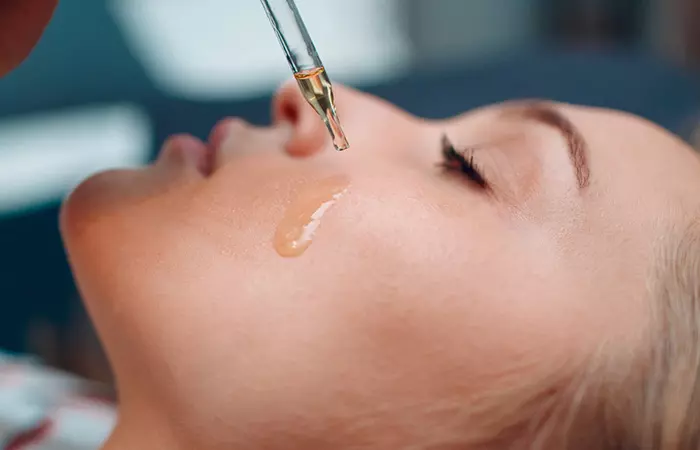
You may use it as an ingredient in DIY face masks. You can also apply the liquid directly to your skin:
- Soak a piece of cotton ball in castor oil.
- Gently dab it all over your face and neck.
- Massage the facial oil for 3-5 minutes in circular motions.
- Wash your face with a mild face wash.
Castor oil should ideally be combined with other vegetable oils and plant butters before applying to maximize its benefits and dilute its potency. Using castor oil alone can occasionally result in dryness or irritation due to its thick and potent consistency, especially for individuals with sensitive skin. Furthermore, it can also aggravate conditions like acne by clogging pores. Carrier oils such as coconut oil or jojoba oil can help dilute castor oil, making it more gentle while retaining the same beneficial effects and adding their own unique, nourishing benefits to the mixture. Here are a few more ways to use castor oil for your face.
Castor Oil For The Face: DIY Recipes
1. Castor Oil Makeup Remover

You Will Need
- 2 tablespoons of castor oil
- 3 tablespoons of coconut oil
- 8 drops of lavender essential oil (optional)
- 1 teaspoon of vitamin E oil (optional)
Procedure
- Mix the ingredients and let the mixture rest for 10 minutes.
- Transfer it to an airtight bottle or container and store it in a cool, dry place.
- Use as required.
2. Castor Oil Face Mask
You Will Need
- 2 teaspoons of castor oil
- 1 egg yolk
- 2 tablespoons of honey
Procedure
- Whisk the egg yolk until it turns frothy.
- Add remaining ingredients to it and mix well.
- Apply the mixture to the face and leave it on to dry.
- Wash off with water.
3. Castor Oil Lip Balm
You Will Need
- 1 teaspoon of castor oil
- 1 teaspoon of canola oil
- 1 teaspoon of jojoba oil
- 1 drop of lemon essential oil (for fragrance)
- 1 drop of frankincense essential oil (for fragrance)
- A 10-millimeter roller bottle
Procedure
- Mix all ingredients and pour the mixture into the roller bottle.
- Screw the lid on.
- Shake well and apply as and when required.
In the following section, we have discussed a nighttime skincare routine with castor oil that you can follow.
How To Include Castor Oil In Your Skin Care Routine
1. Remove Your Makeup
A castor oil makeup remover can gently lift the dirt, dust, and makeup from your face. Oil cleansing prevents clogged pores and reduces the chances of breakouts. Gently massage the makeup remover all over your face and neck, and then wipe with a damp cotton pad. Follow up with a mild foaming face wash.
2. Apply A Face Mask
Once you have finished cleaning your face, apply the castor oil face mask. This helps tone the skin and exfoliate dead skin cells. Spread the face mask evenly on your skin and let it dry. Wash off with lukewarm water. Follow up with a toner and moisturizer.
3. Moisturize Your Lips
Your delicate lips need moisturization to stay plump and healthy. Use the castor oil lip balm on your lips before sleeping to keep them soft and supple.
Before using castor oil, you must be aware of the side effects.
Side Effects Of Using Castor Oil For The Face

Castor oil may cause skin irritation. In a study, castor oil (undiluted) caused severe irritation on rabbit skin. However, it caused mild irritation on guinea pig and rat skin (10).
Human trials found that castor oil was not a skin irritant. However, those who have occupational dermatoses (a type of skin inflammation) may experience skin irritation (10).
Another study found castor oil may cause allergic contact dermatitis in some individuals. It mentions that people with sensitive skin who use lip balms or glosses containing castor oil may experience pruritus (itching) and erythema (redness) on the lips (11). Therefore, always check for skin sensitivity before using castor oil for your face.
Castor oil may also cause eye irritation and mild discomfort if it enters the eye (10). Hence, you need to be cautious while using castor oil on your skin.
Precautions To Follow Before Using Castor Oil
- Do A Patch Test: People can be allergic to castor oil. Hence, a patch test is mandatory before using the oil.
- Consult A Doctor: If you have skin issues, allergies, or inflammation, consult a doctor before using castor oil as it may aggravate your condition.
- Check The Label: The preservatives in castor oil can also cause irritation. Read the label and check the list of ingredients. Go for oils from reputed brands or use cold-pressed organic oil without additives. Also, check the expiration date before buying.
Note: If you are pregnant or lactating, consult your doctor before using castor oil.
Infographic: Castor Oil for Hair: How to Use It
Castor oil has long been used as a treatment for thinning hair and hair loss and for aiding hair growth. Moisturizing dry hair, controlling frizz, and reducing knots are just a few of its additional benefits. It can also help your hair become thicker and stronger. Check out the infographic below to learn how to apply castor oil to your hair.
Some thing wrong with infographic shortcode. please verify shortcode syntax
Castor oil is often used in skincare products and cosmetics, and many people apply this oil to their faces. Castor oil benefits for the skin and face are widely-known. However, research regarding the safety of castor oil for the face or skin is limited, and most of the claims are based on anecdotal evidence. Therefore, it is best to practice caution while using castor oil for your face and skin. Always do a patch test as castor oil may irritate the skin, and avoid it altogether if you have an existing skin condition. Consult a doctor if you notice irritation and rashes after using castor oil.
Frequently Asked Questions
Can I leave castor oil on my face overnight?
No. Avoid leaving castor oil on your face overnight. It may clog the skin pores and may also cause allergic reactions.
Does castor oil darken your face?
No. Castor oil may not darken your skin. However, it may cause breakouts and allergic reactions, which may impact your skin health, leading to a dull appearance.
Is castor oil good for glowing skin?
It may. The fatty acids in castor oil may keep the skin moisturized, contributing to its overall glow.
Is castor oil good for face wrinkles?
While there is no evidence that using castor oil for wrinkles works as an anti-aging remedy, anecdotal evidence claims that it may moisturize the skin, which may help improve the appearance of wrinkles.
Can I mix castor oil with rose water?
Castor oil and rosewater may not mix. However, you may use the two ingredients in a facial mask and apply the mixture to your skin.
Illustration: Benefits Of Castor Oil For The Face, How To Use It, & Risk
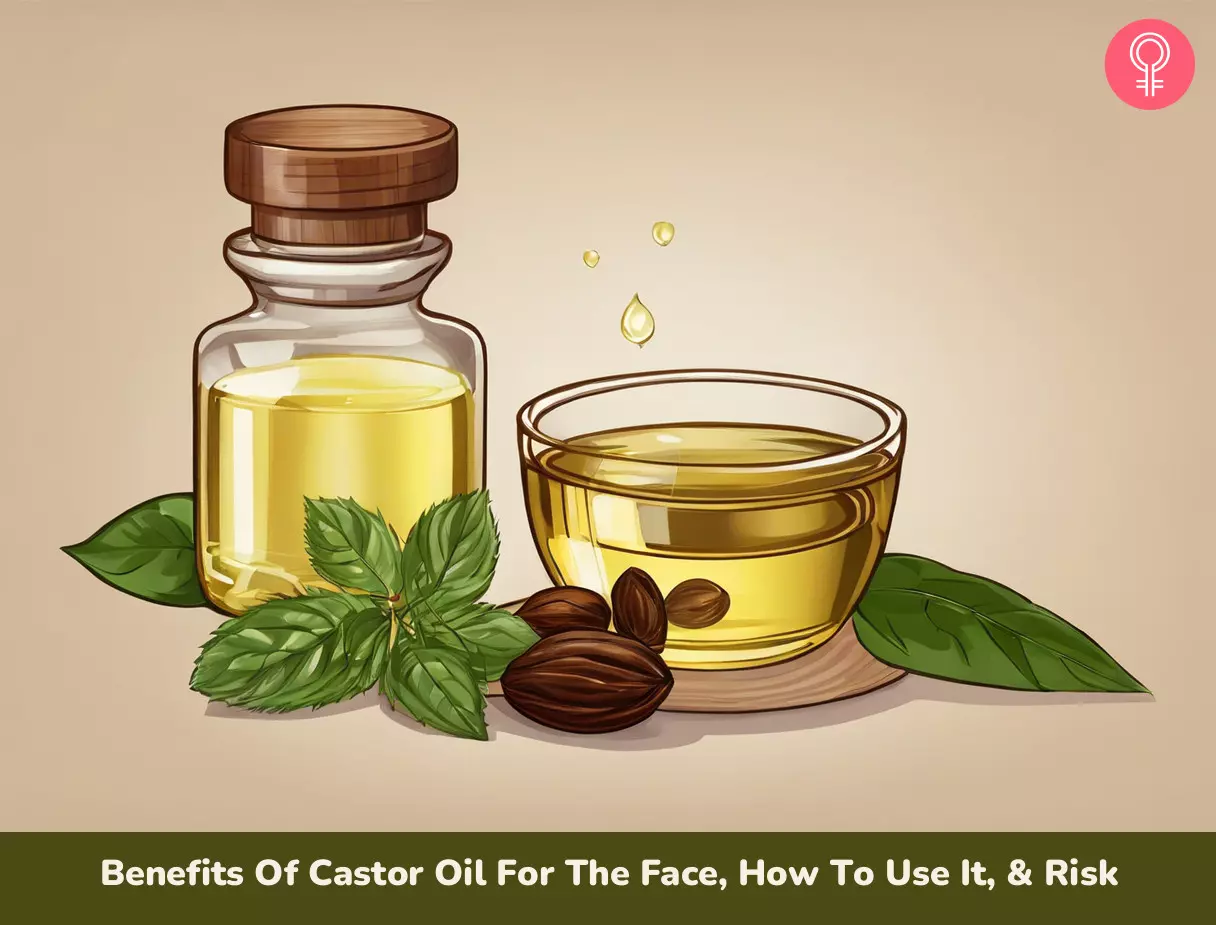
Image: Stable Diffusion/StyleCraze Design Team
Learn how to use castor oil for skincare! Check out this video to discover the amazing benefits of this natural oil and learn how to use it for a healthier, glowing complexion.
Personal Experience: Source
StyleCraze's articles are interwoven with authentic personal narratives that provide depth and resonance to our content. Below are the sources of the personal accounts referenced in this article.
i. Castor oil and ways to use ithttps://marikapurena.wordpress.com/2016/02/26/castor-oil-and-ways-to-use-it/
ii. Castor oil as moisturizer
https://jamaicanbeautyblog.wordpress.com/2009/11/23/castor-oil-as-moisturizer/
References
Articles on StyleCraze are backed by verified information from peer-reviewed and academic research papers, reputed organizations, research institutions, and medical associations to ensure accuracy and relevance. Read our editorial policy to learn more.
- A Case of Castor Bean Poisoning, Sultan Qaboos University Medical Journal, US National Library of Medicine, National Institutes of Health.,
https://www.ncbi.nlm.nih.gov/pmc/articles/PMC3087745/ - Bioactive-Based Cosmeceuticals: An Update on Emerging Trends
https://www.ncbi.nlm.nih.gov/pmc/articles/PMC8837976/ - Efficacy of castor oil cream in treating infraorbital hyperpigmentation: An exploratory single-arm clinical trial
https://pubmed.ncbi.nlm.nih.gov/37927123/ - Characterization and evaluation of antibacterial and antiproliferative activities of crude protein extracts isolated from the seed of Ricinus communis in Bangladesh,
https://www.ncbi.nlm.nih.gov/pmc/articles/PMC4942971/ - In vitro antimicrobial activity of auxiliary chemical substances and natural extracts on Candida albicans and Enterococcus faecalis in root canals.,
https://pubmed.ncbi.nlm.nih.gov/23739849/ - Candidiasis
https://www.ncbi.nlm.nih.gov/books/NBK560624/ - Emerging fungal infections among children: A review on its clinical manifestations, diagnosis, and prevention
https://pmc.ncbi.nlm.nih.gov/articles/PMC2996076/ - Effect of ricinoleic acid in acute and subchronic experimental models of inflammation,
https://www.ncbi.nlm.nih.gov/pmc/articles/PMC1781768/ - Anti-inflammatory effects of a novel ricinoleic acid poloxamer gel system for transdermal delivery,
https://pubmed.ncbi.nlm.nih.gov/25542985/ - Final report on the safety assessment of Ricinus Communis (Castor) Seed Oil, Hydrogenated Castor Oil, Glyceryl Ricinoleate, Glyceryl Ricinoleate SE, Ricinoleic Acid, Potassium Ricinoleate, Sodium Ricinoleate, Zinc Ricinoleate, Cetyl Ricinoleate, Ethyl Ricinoleate, Glycol Ricinoleate, Isopropyl Ricinoleate, Methyl Ricinoleate, and Octyldodecyl Ricinoleate. ,
https://www.ncbi.nlm.nih.gov/pubmed/18080873 - Castor oil
https://www.ncbi.nlm.nih.gov/books/NBK551626/
Read full bio of Dr. Suchana Marahatta
Read full bio of Ramona Sinha
Read full bio of Anjali Sayee
Read full bio of Krati Darak






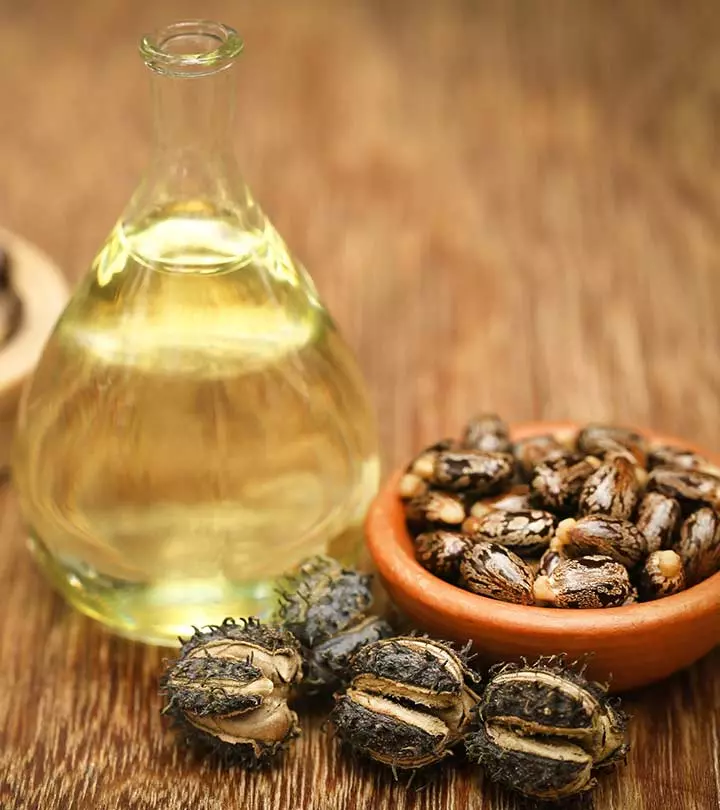
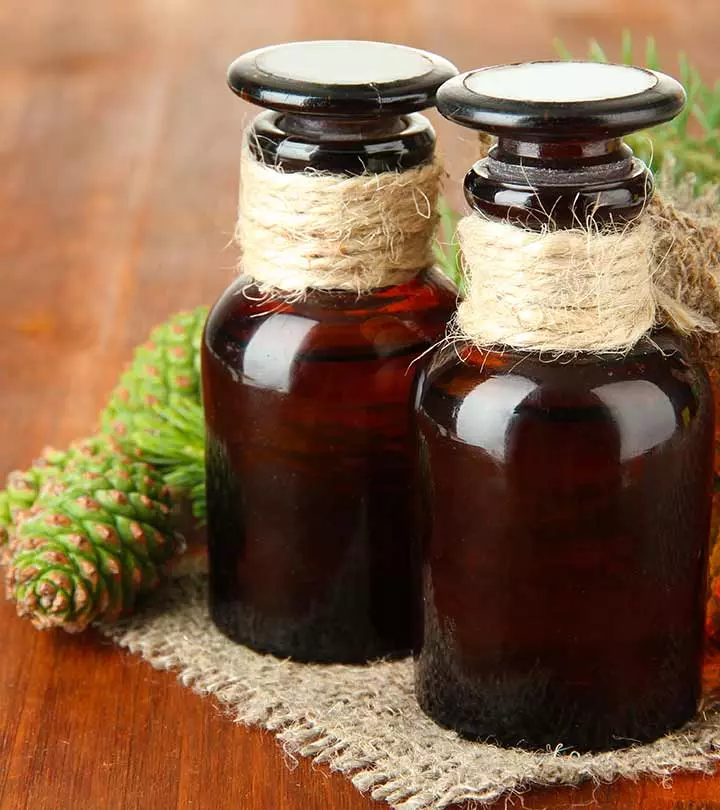

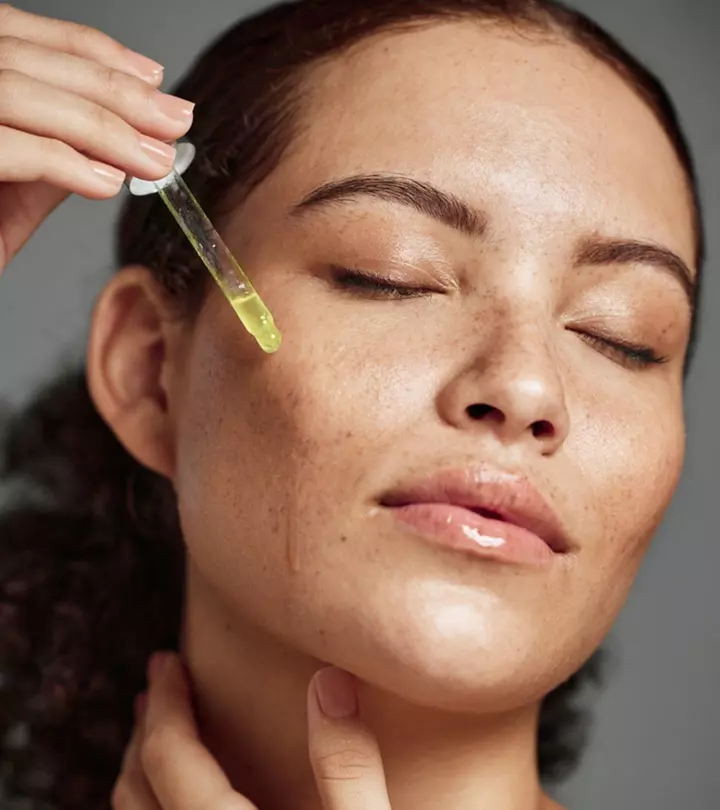
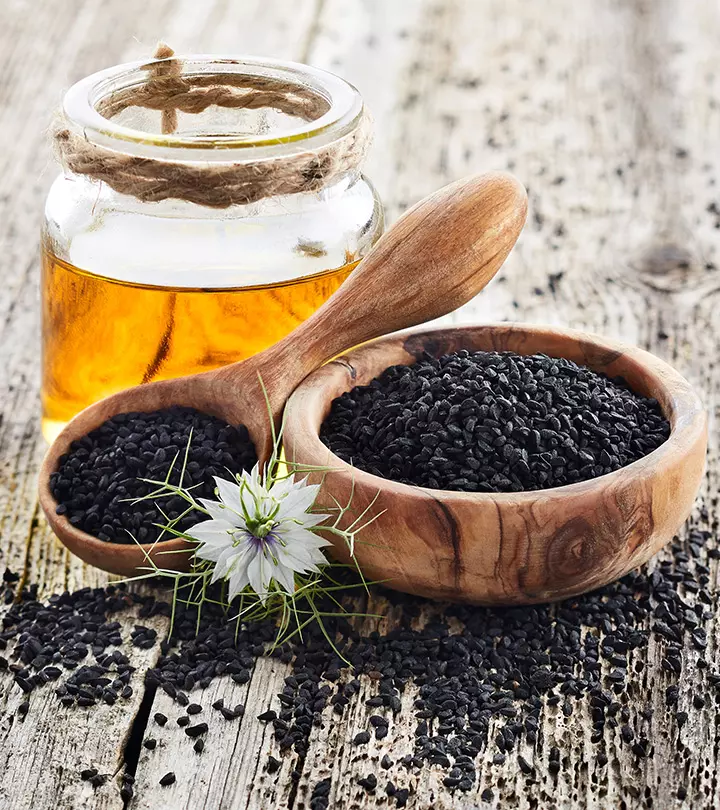
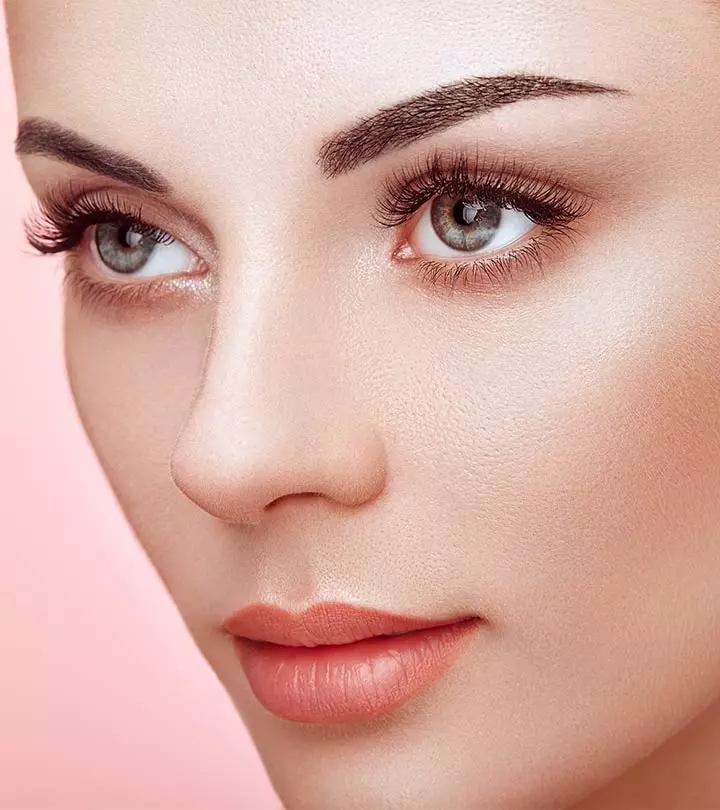
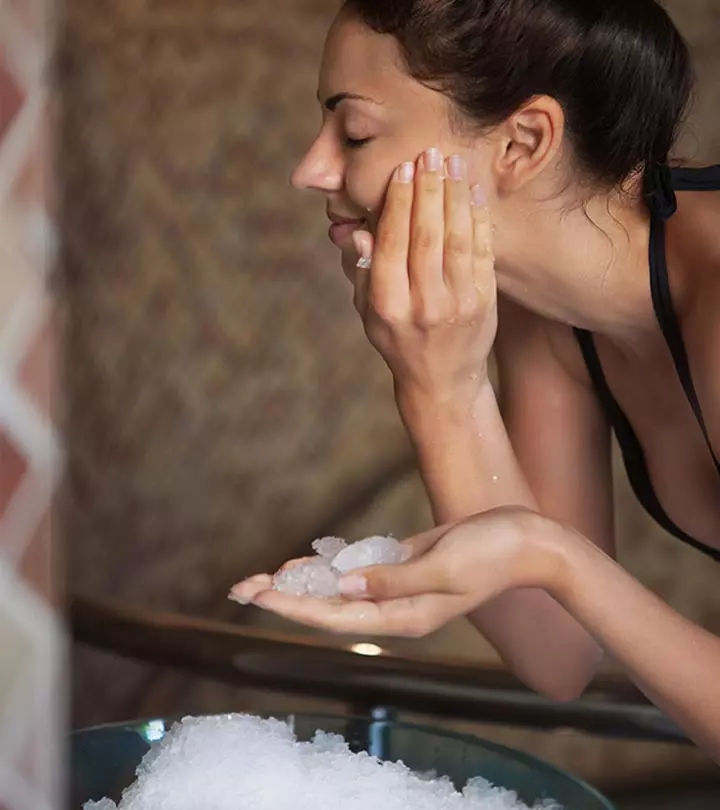

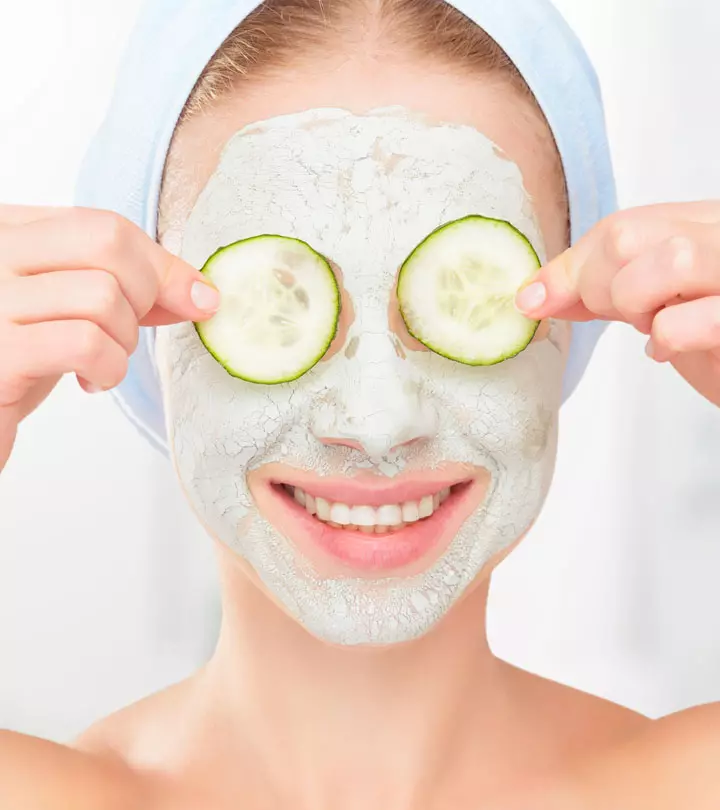
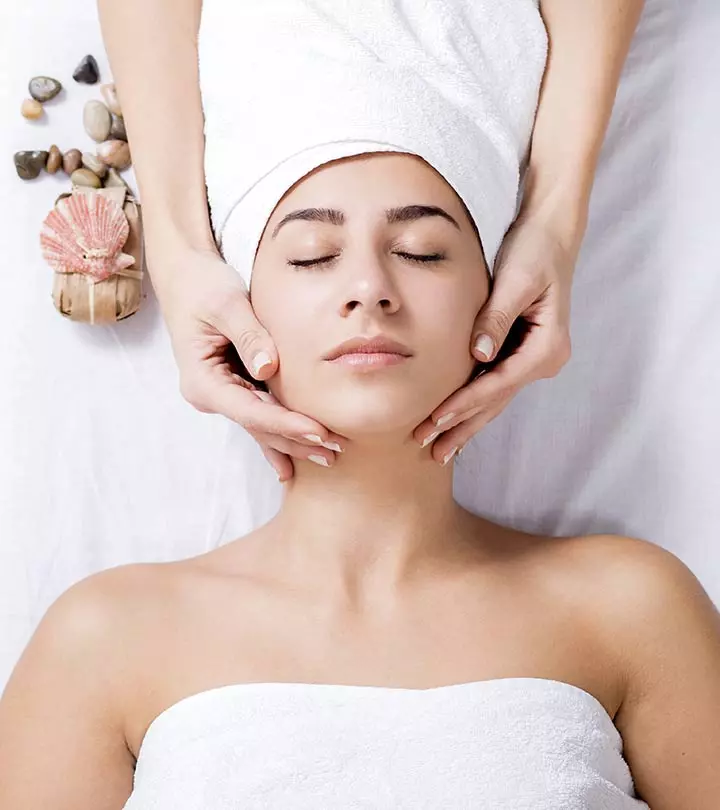
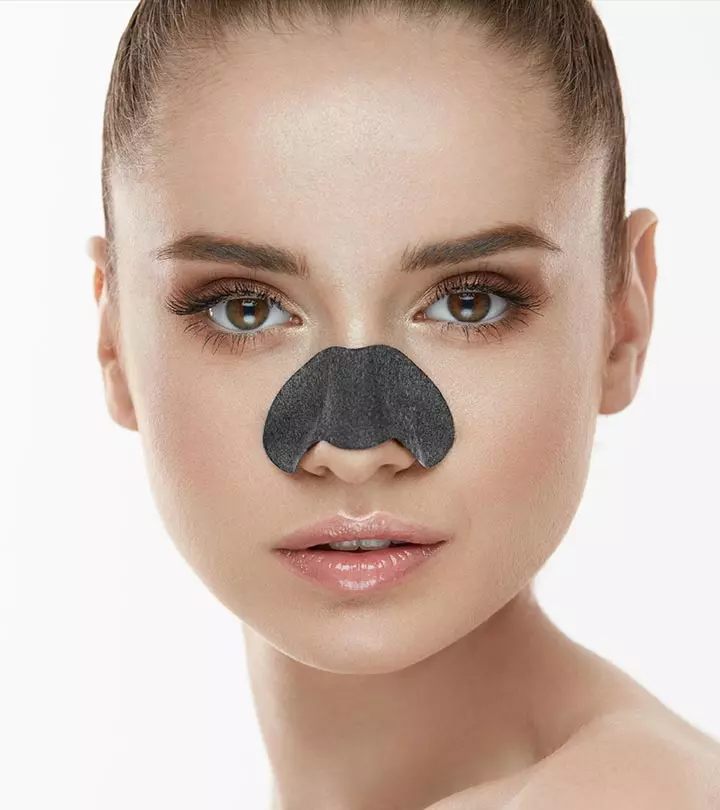
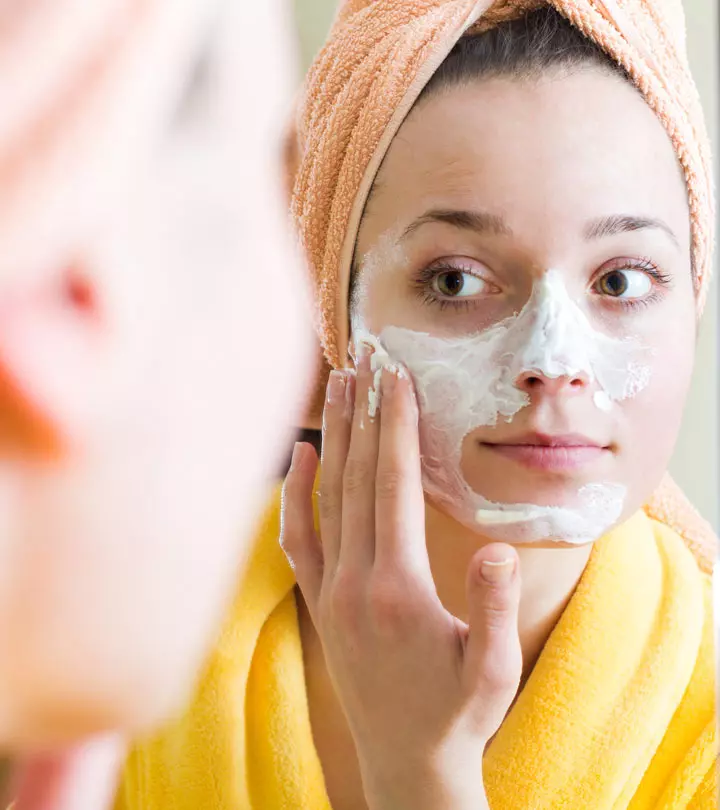
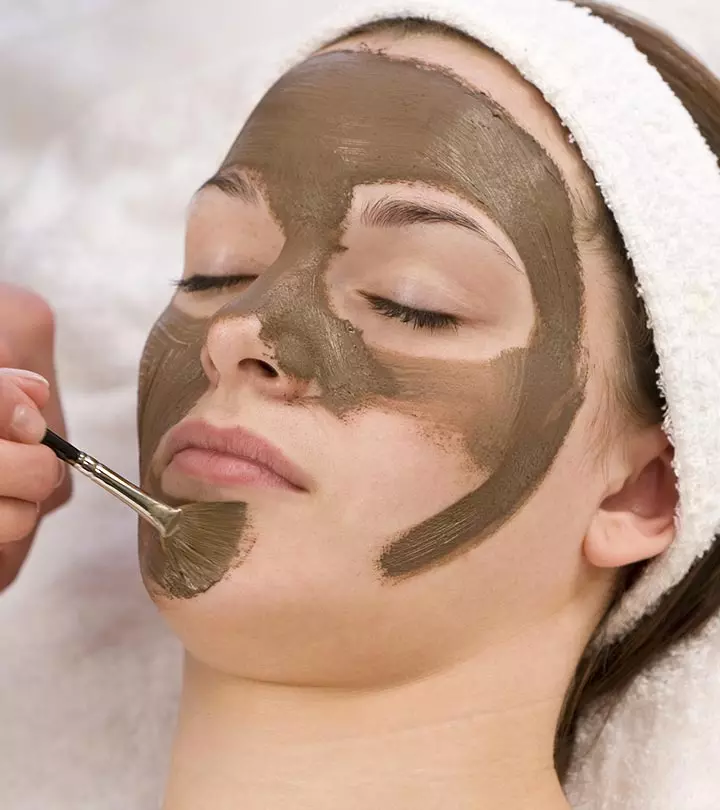
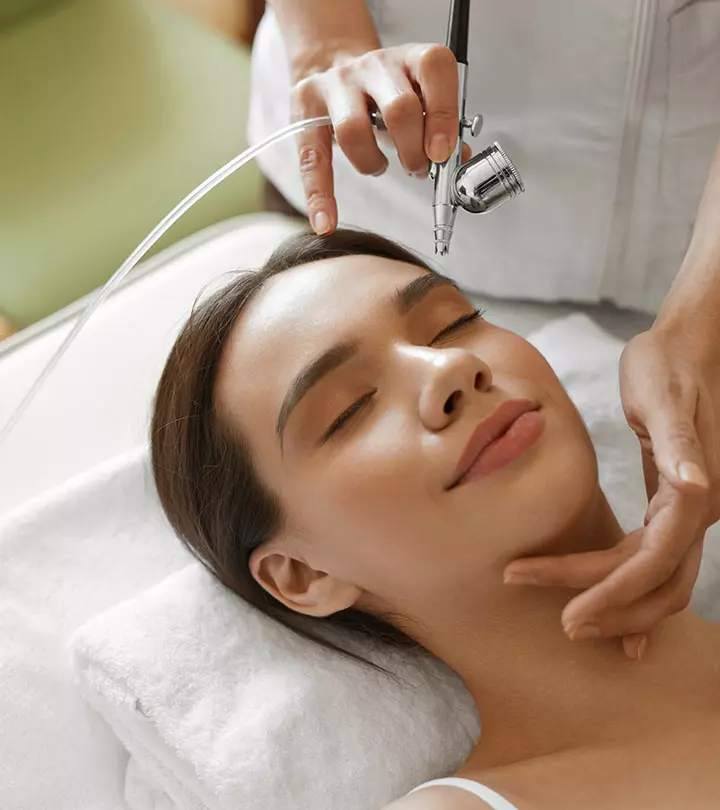
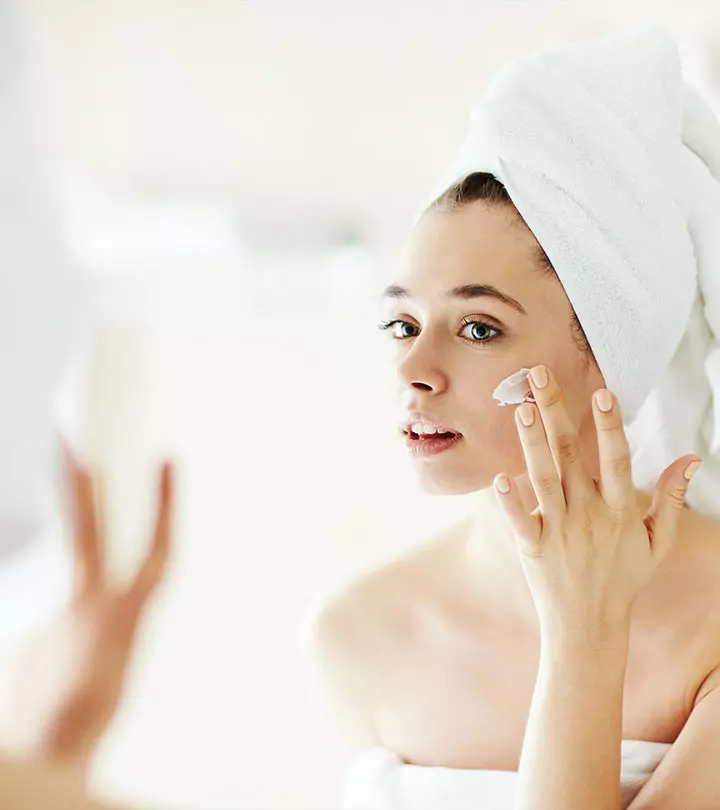
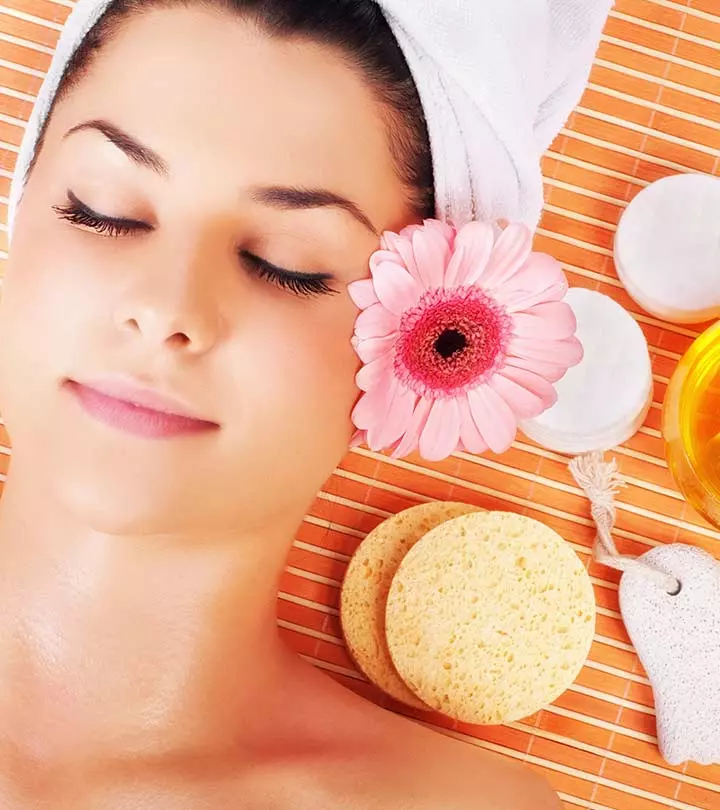
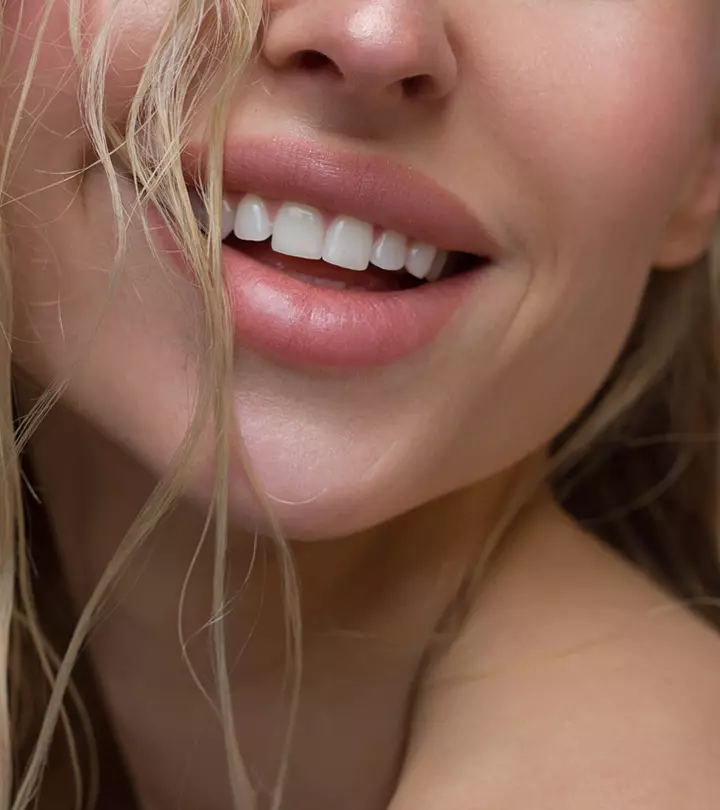



Community Experiences
Join the conversation and become a part of our empowering community! Share your stories, experiences, and insights to connect with other beauty, lifestyle, and health enthusiasts.